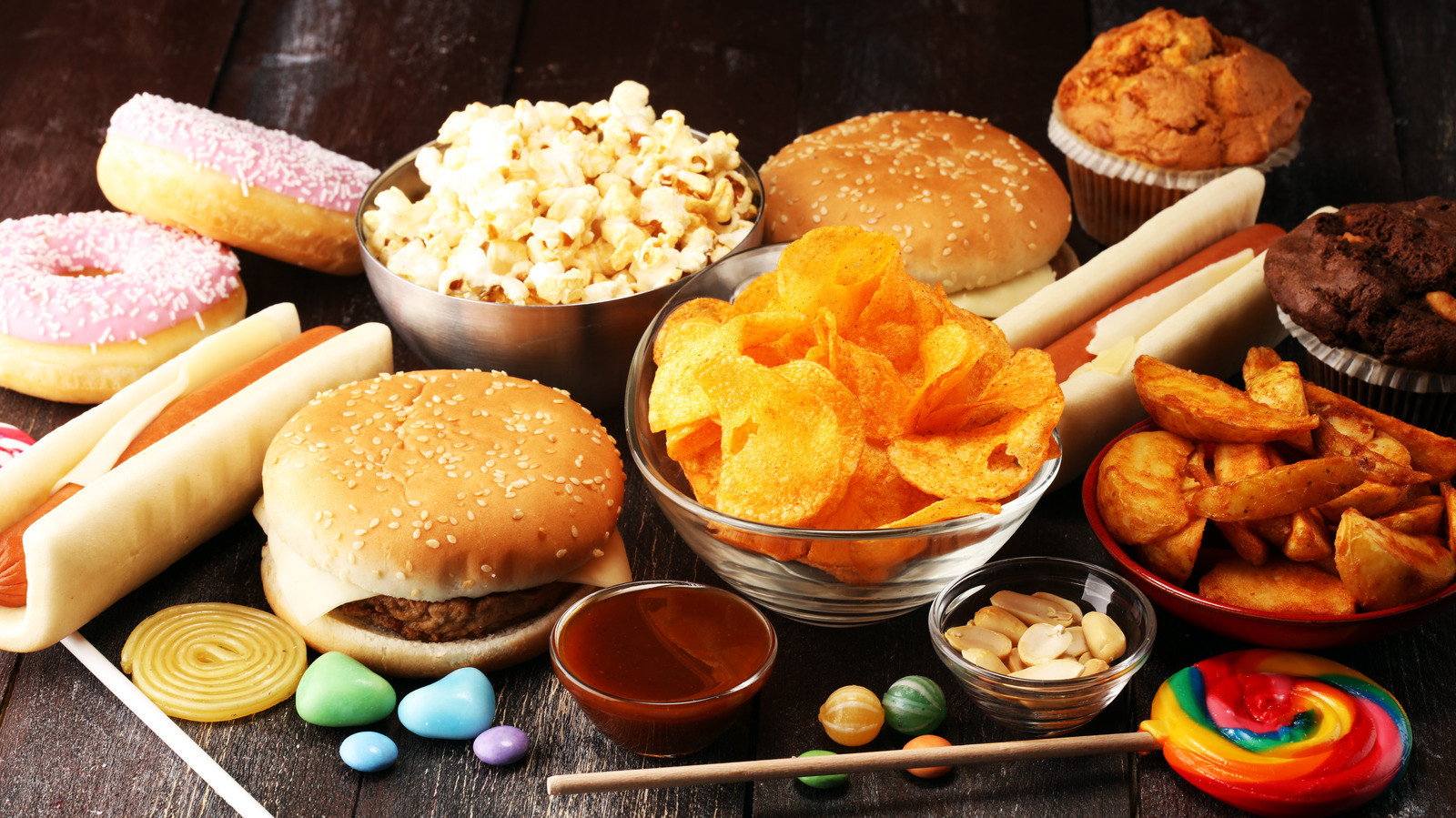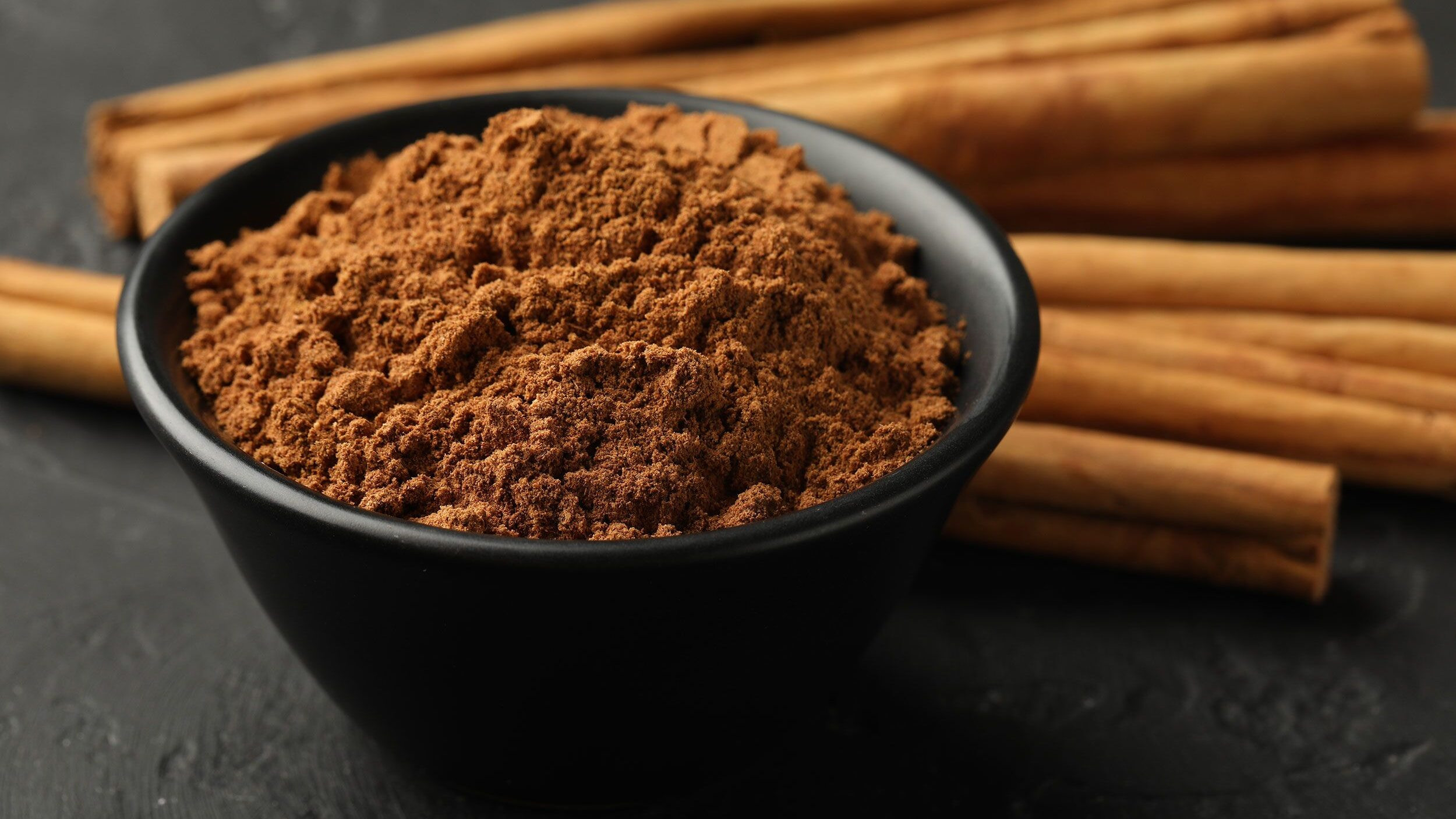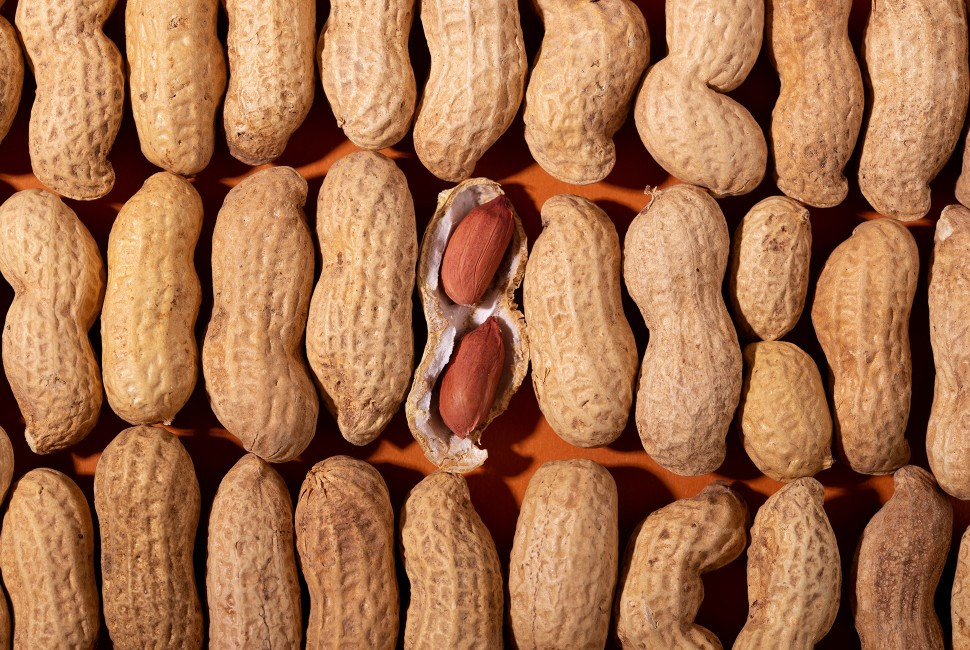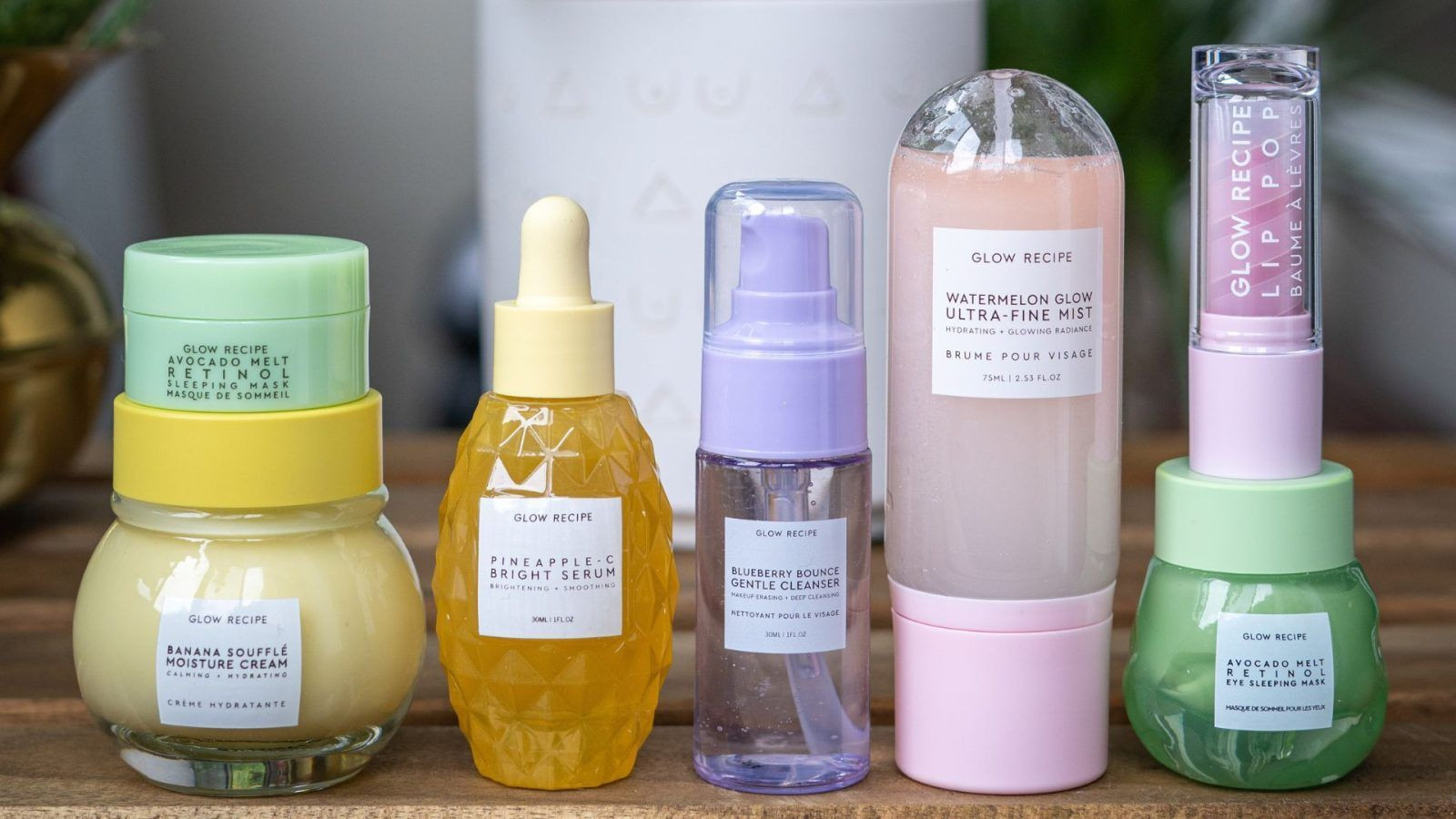Over the past few years, ultra-processed foods have been the subject of myriad new stories, Instagram posts, and dinner party conversations.
But all the chatter about this hot topic may have left you feeling confused about how you should actually change your diet (if at all).
With manufacturers using clever tricks to get us to consume their products, around 60% of the calories the average American eats are thought to be from UPFs.
While research is ongoing to better understand how UPFs — which contain ingredients you wouldn't typically find in a home kitchen — affect us, they have been linked with an array of health problems including type 2 diabetes, depression, and cardiovascular disease.
But should we be avoiding UPFs at all costs? And if so, how?
These are the questions that dietitian Nichola Ludlam-Raine seeks to answer in her new book, "How Not to Eat Ultra-Processed," which also contains recipes to help people consume fewer UPFs.
However, others — sometimes referred to as the "worried well" — are unnecessarily stressed about including tiny amounts of UPFs in otherwise unprocessed diets, Ludlam-Raine said.
This is why Ludlam-Raine wants to help people learn about how to reduce their UPF intake while still enjoying their lives.
"Although the aim of the game is to cut down on UPFs as much as possible, it's also about soothing any anxiety that having some UPFs is going to be harmful for health," she said.
Making UPF-Free Diet Adjustments
Ludlam-Raine shared two common mistakes people make when trying to consume fewer UPFs.
Not All UPFs Are Equal
Not all UPFs are created equal and there's a difference between healthy UPFs and less healthy ones, Ludlam-Raine said. She breaks foods down into four groups:
Ludlam-Raine encourages people to think of UPFs on a spectrum, meaning that baked beans — a staple tinned food in the UK where she is based — shouldn't be seen in the same light as a packet of candy or a chocolate bar.
Rather than demonizing every food containing an ingredient you wouldn't find in your kitchen, look at what the main componets are, she said. For example, in a tin of baked beans that is likely beans and tomatoes.
"Baked beans are full of fiber, vitamin C, some plant-based protein," Ludlam-Raine said. "However, it is unfortunate that modified starch makes it a UPF."
That's very different from a chocolate bar where the main two ingredients might be sugar and glucose syrup.
She also highlighted that it's important to remember foods that are "natural" or "unprocessed" aren't necessarily healthy — sugar and butter, for example, may not be UPFs but should still be eaten in moderation. There's a lot to consider when choosing food, Ludlam-Raine said.
The Social Aspect of UPFs
It's well established that maintaining strong social relationships and connections is important for health and longevity. Quitting UPFs can make socializing incredibly difficult for some, she said.
"I would say it's actually impossible to have a completely UPF-free diet and go about your everyday life and socialize," she said.
Not enjoying a slice of birthday cake with family and friends once in a while could be more damaging than having it, because social interactions are a big part of health, Ludlam-Raine said.
For this reason, she advises people to strive for an 80% whole food diet and then not worry about eating 20% UPF.
"If you're cooking mainly from whole foods, you don't have to worry about having the odd Mars bar," Ludlam-Raine said.
To try and reach that 80% whole food mark, check the ingredients on products you buying and consider swapping brands, she said.
If you have a daily diet cola habit, for example, Ludlam-Raine recommended saving it for a weekend treat or cutting down to every other day. Try sparkling water with some fruit juice as a non-UPF alternative, she said.
For her part, Ludlam-Raine drinks fruit squash (a popular product in the UK, similar to cordial) which, though UPF, helps her stay hydrated and drink enough water, she said.
What are ultra-processed foods?
Ultra-processed foods are those that contain no or few whole food ingredients and have undergone multiple processing steps where sweeteners, preservatives, colourings, flavourings and emulsifiers are added. These substances are often extracted from oils, fats, sugars, starches and proteins, and they extend shelf life and make food more palatable.
The Dangers of Ultra-Processed Foods
A Guide to Some Generally Processed Foods That Are NOT Ultra-Processed
Breakfast
Most breakfast cereals are UPFs, but one exception is Shredded Wheat, which is 100% whole wheat.
Dairy
"I like to combine coconut yoghurt with plain Greek yoghurt and top it with fruit," says Hobson. "But it’s often a UPF because it contains stabilisers and thickeners." This coconut kefir, made in Kent, is one of the better options: it is made from 97% organic coconut milk, with organic tapioca starch as a thickener, plus live vegan cultures that may be beneficial for gut health.
Nuts & Seeds
Lots of nut butters contain added sugar, palm oil and emulsifiers. This one is just roasted and milled organic peanuts, hazelnuts, cashews and almonds. The mix of nuts contributes four “plant points” to your weekly total (experts say we should eat 30 different plants a week). It is pricier than most plain peanut butters, but a spoonful on porridge goes a long way.
Bread
"If buying a loaf of bread, the organic or sourdough versions are more likely to be non-UPF," says Wilson. This Waitrose sourdough contains a mix of white, wholemeal, and medium and dark rye flours, and is made properly with a sourdough starter (sourdough shouldn’t contain baker’s yeast).
Beans
Wilson buys baked beans, and while Hobson makes his own, he says: “I’d eat bought ones on wholemeal bread; they provide a lot of fibre.” Try to buy organic, as non-organic versions often contain modified starches, colours and flavourings.
Salads
"If I’m eating on the run, I often buy readymade salads," says Hobson. "I look for leaves, grains, seeds and protein. The dressing is often ultra-processed, but I just use a bit." This M&S salad contains eggs and tuna, plus lots of vegetables: potatoes, tomatoes, green and red lettuce, green beans, spinach, olives, onion … And there’s nothing in the dressing that you wouldn’t find in your own (well-stocked) kitchen.
Soups
"If I’m unwell, I’ll go for a brothy soup – something like a fresh shredded chicken broth," says Hobson. If you don’t have any homemade soup stashed in the freezer, this Waitrose version is a passable replacement. It contains plenty of vegetables (onion, carrot, potato, white cabbage, peas, spinach and celery) and some chicken, but there are also ingredients you wouldn’t add at home, such as potato starch and dried potato, chicken extract and yeast extract powder.
Falafels
"I make my own falafels, but it wouldn’t bother me to buy them," says Hobson. "Just check the label for ultra-processed ingredients, such as flavourings and colourings." These Levantine Table falafels are 52% spinach, although they are high in fat – the second ingredient is rapeseed oil. Of the dozen other ingredients, the only one a home cook wouldn’t use is potato starch.
Hummus
"I buy hummus all the time," says Hobson. Some brands contain preservatives, and most are made with at least some rapeseed or sunflower oil. This one is just chickpeas, extra virgin olive oil, tahini, concentrated lemon juice, salt and garlic. Technically the “concentrated” juice makes it a UPF, but it’s about as good as shop-bought hummus gets.
Flatbreads
Flatbreads usually contain an alarmingly long list of ingredients, including preservatives, emulsifiers, raising agents and stabilisers, partly to keep them soft – softness is one of the hallmarks of UPFs. This one, by contrast, contains just five everyday ingredients: wholemeal and wheat flour, water, extra virgin olive oil and salt.
One-Pot Meals
"I used to buy Bol pots for lunch when I worked in an office," says Hobson. The one-pot meals contain normal home-cooking ingredients and the range includes a coconut lentil dal (although bear in mind that dal is one of the cheapest and easiest dishes to make at home).
Drinks
"I don’t want to drink water all the time, but I don’t want drinks with lots of sugar or artificial sweeteners," says Hobson. "I like Dash drinks – they’re fizzy water with fruit essences. They contain ‘natural flavourings’, so they’re on the border of UPF, but they’re a lot better than Diet Coke." Dash drinks are made from British spring water and “wonky” fruit that would be rejected by supermarkets, thus reducing food waste, and have no added sugar or sweeteners. They are available in a range of flavours.
Grains
"Packet grains are a lifesaver – I eat them all the time," says Hobson. "The plain ones are best, as the flavoured ones may contain ingredients that class them as UPF, such as glucose syrup. I partner them with vegetables and lean protein." Two good examples are M&S’s 7 Grain Medley (brown rice, bulgur wheat, spelt, barley, brown lentils, buckwheat and white quinoa), which is hard to find online but widely available in stores, and this Glorious Grains mix, which contains wheatberries, red rice, freekeh, black barley and quinoa. Both are high in fibre and a great way to get a wide variety of wholegrains into your diet.
Pizza
In an ideal world, we’d all make our own pizza from scratch, but these pizza bases are a handy shortcut. They are slow-proved, wood-fired and have a short ingredients list: wheat flour, water, tomato pulp, tomato puree, olive oil, durum wheat semolina, salt, yeast and malted wheat flour. Add vegetable toppings to up the fibre content. "I am partial to a pizza every now and then," says Hobson. "There’s a place for every food as part of a balanced diet."
Gnocchi
Shop-bought gnocchi are often made from dried potato and contain acidity regulators, preservatives and flavouring. This Dell’Ugo version uses fresh potato, with just wheat flour, salt and sunflower oil added. Unusually, the two “flavoured” variants contain nothing other than pumpkin and spinach respectively.
Filled Pasta
For a quick, kid-friendly dinner, you could do worse than this filled pasta. It contains free-range eggs and nothing that you wouldn’t find in a home kitchen. You could pair them with No 1 Pesto Alla Genovese: basil, extra-virgin olive oil, pine nuts, lemon juice, parmesan, garlic puree and salt (£3.60 for 145g).
Ready Meals
In his book Ultra-Processed People, Chris van Tulleken notes that several supermarket lasagnes contain only normal kitchen ingredients. This is not to say that they are the same as homemade food – he points out that they are still wrapped in plastic and made by the same companies that make UPFs. But if you really must buy a ready meal, lasagne is perhaps the least bad.
Sausages
Plant-based meat alternatives have come under fire for their ultra-processing. Vegetables are the healthiest option on a barbecue – marinated king oyster mushrooms have a satisfyingly meaty taste and texture – but sometimes only a sausage will do. These are 79% tofu, although they do also contain “coagulating agents”.
Coconut Milk
"I prefer blocks of creamed coconut to tins of coconut milk because I try to limit my intake of emulsifiers," says Wilson. Most coconut milk contains emulsifiers and stabilisers – even some organic brands add guar gum. Biona’s coconut milk is one of the exceptions, being just coconut and water. But blocks of creamed coconut are usually 100% coconut (check the label), last longer and work out much cheaper.
Pasta Sauce
"I buy a plain, fresh pasta sauce for a really quick meal," says Hobson. "I add tuna and spinach to my pasta, and sometimes jazz it up with chilli and spices." This one is 76% tomatoes, plus onion, rapeseed oil, garlic, basil, sugar and salt.
Sauces
"I buy sauces such as sriracha and gochujang to use in dressings," says Hobson. "I like Sauce Shop – it doesn’t use any additives." Wilson also admits to buying condiments such as mayonnaise, ketchup and tamarind sauce. It’s well worth reading the label when choosing sauces, as many contain a cocktail of modified starches, thickeners, stabilisers, preservatives and flavour enhancers. But this sriracha is simply made from smoked red peppers, chilli and onion, fermented with cider vinegar, garlic, miso, sugar and salt.
Snacks
For a truly unprocessed snack, it has to be nuts, seeds and fruit. But on days when that doesn’t hit the spot, Nakd bars are a half-decent alternative. "I’d eat one on the way to the gym if I’d skipped breakfast, or after a workout, or at a festival," says Hobson. "They contain ‘flavourings’, so they’re ultra-processed. But as an energy snack, they’re not that bad." The Blueberry Muffin flavour, for example, is made from dates, cashews, raisins, almonds and blueberries, plus that “hint of natural flavouring”.
Crisps
"Crisps are my downfall," says Hobson. "I buy good-quality, plain or lightly salted crisps such as Tyrrells." Salted snacks such as crisps and nuts are usually a less-processed option than the flavoured equivalent. Tyrells lightly sea-salted, for example, contain just potatoes, sunflower oil and sea salt, whereas the tomato & chilli chutney flavour has 27 ingredients.
Ice Cream
Ice-cream is another product that has become synonymous with UPF. However, says Wilson, "the organic versions are typically emulsifier-free." This one is still ultra-processed as it contains skimmed milk powder, but it is otherwise just milk, cream, free-range egg, sugar and vanilla extract, so it’s not a bad option for something that is never going to be a health food anyway.
Chocolate
If you can’t quite handle the bitterness of chocolate with 100% cocoa solids, such as Montezuma’s Absolute Black (£2.50 for 90g at Sainsbury’s), this is the next-best thing. It contains 90% cocoa mass, plus cocoa butter and sugar.
A Final Word
It is important to keep in mind that UPFs are a hot topic, and there is still much that we don't know about their impact on health. While it's important to be mindful of the UPFs in your diet, it's also important to live a balanced life. It's okay to enjoy a slice of birthday cake or a pint of ice cream once in a while! If you make healthy choices most of the time, you'll be on the right track.

















